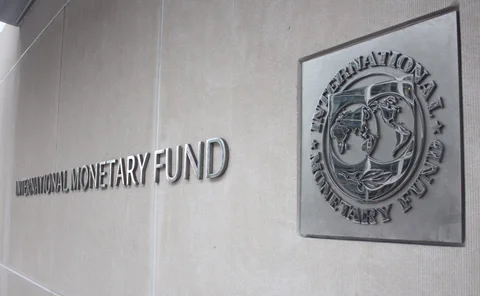Japan
Bank of Japan increases bond purchases amid global sell-off
Both the prime minister and the governor see no rush to withdraw stimulus
BoJ board notes disappointing inflation indicators
Low inflation and expectations in a “weakening phase” drag on BoJ’s policy outlook
Spanish paper analyses determinants of private saving
Fiscal, demographic, financial and income effects are key, researchers find
HKMA launches consultation on open API framework
Open API enables personalised services for bank users but requires access to customer data
BoJ’s cut to bond purchases not an exit strategy, say analysts
Move was unexpected, but analysts do not see it as a sign the BoJ may be preparing to exit its stimulus programmme
Balancing reserves’ effectiveness and transparency
Why do countries accumulate more and more reserves if they know intervention may prove ineffective? Iris Yeung speaks to Canada’s Eric Wolfe
Bank of Japan keeps policy setting on hold
BoJ keeps policy on hold as inflation target remains elusive; Goshi Kataoka dissents again
BoJ working closely with fintech firms, says Kuroda
Fintech can make contributions to both emerging and developed countries, but needs close monitoring, Haruhiko Kuroda says
Productivity puzzles and the neutral rate of interest
Monetary policy frameworks should be subjected to internal and external reviews to ensure they remain fit for purpose
BoJ lowers inflation forecast as policy stays on hold
BoJ downgrades inflation forecast again, leaving tightening unlikely anytime soon
BoJ says Japan is overbanked
The central bank says Japanese banks may have too many employees and branches
Better structure could protect investors in P2P market - BoJ paper
Use of “specific purpose companies” could help protect investors in the event of the collapse of a P2P platform
People: FSB appoints new secretary-general
ADB’s East Asia department and International Association of Deposit Insurers also gain new heads
Japan’s ineffective efforts at monetary easing
A study of the natural rate of interest indicates the Bank of Japan’s QQE may not have been as accommodative as claimed, Sayuri Shirai argues. The failings appear to be related to effectiveness, rather than scale
Kuroda deflects criticism of 2% target
BoJ governor pushes back at those calling for a reduction in the target, as inflation in Japan remains off course
Momentum towards inflation target is strengthening, says BoJ board member
Rising household income and productivity are positive signs, Takako Masai says
Archive – Interview: Allan Meltzer
Robert Pringle talks to Allan Meltzer, Carnegie Mellon professor and chair of the US Congress’s International Financial Institution Advisory Commission (the “Meltzer Commission”); first published in February 2003
Stanley Fischer analyses the factors behind low real interest rates
The economist emphasises government policy uncertainty in the US regarding health care, regulation, taxes and trade, as well as higher savings and weak investment
IMF gloom on US and UK balanced by brighter spots elsewhere
IMF raises projections for China, Japan and eurozone as the UK and US falter; maintains global growth forecasts at 3.5% in 2017
Bank of Japan cuts inflation forecast as policy remains on hold
The BoJ cuts its forecast for prices as it struggles to hit its inflation target; keeps policy steady
The BoJ’s exit policy and balance sheet risks
The Bank of Japan will need to follow a meticulous sequencing of events as its ‘normalises’ monetary policy, making current concerns about negative equity appear premature
BoJ ups asset purchases to curb bond market pressure
The Bank of Japan has increased the size of JGB purchase operation and announced unlimited purchases of 10-year JGBs at a fixed rate of 0.11%
Survey data can help with modelling expectations – BoJ paper
Discussion paper outlines method of incorporating survey data as a proxy for expectations, with “promising” results for inflation modelling in the US and Japan
BoJ told to improve communication on potential exit from stimulus
Speculation is growing over the timing and method of the exit from the stimulus programme, creating a new communication challenge for the BoJ



















